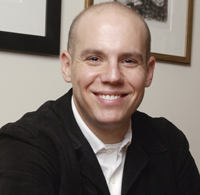
Making Science Fun. Now What?
Our guest this week is Todd L. Pittinsky, professor in the College of Engineering and Applied Sciences at Stony Brook University. Todd and Nicole Diamante (a doctoral candidate in engineering at Stony Brook) recently wrote an article that caught our eyes. In “Going Beyond Fun in STEM,” (Phi Delta Kappan) Pittinsky and Diamante suggest that perhaps after the Mentos geyser demonstration, science teachers might only get “a bottle of flat Pepsi and too many students who still arrive at college academically unprepared for STEM majors or — perhaps more important — emotionally unprepared to stick it out when the subjects inevitably get tough.” Todd joins us to remind us that fun isn’t enough in science, and suggests what intrinsic and extrinsic motivations are actually needed to get students more interested in math and science, and ultimately succeed in these fields.
Download the article free from Phi Delta Kappan: Going Beyond Fun in STEM
Quotes from the Article:
What’s left after the Mento geyser? A bottle of flat Pepsi and too many students who still arrive at college academically unprepared for STEM majors or — perhaps more important — emotionally unprepared to stick it out when the subjects inevitably get tough. (Pittinsky and Diamante, p. 48)
Instead of continuing down the fun STEM path, K-12 educators may need to focus less exclusively on intrinsic motivators such as fun and expand to more extrinsic motivators. (Pittinsky and Diamante, p. 51)
It is naïve and disingenuous to have this extrinsicmotivation pushing STEM as a national priority, but then count on young people to carry it out in the expectation that it will be great fun. (Pittinsky and Diamante, p. 51)
Links:
- Download the article free from Phi Delta Kappan: Going Beyond Fun in STEM
- Hour of Code
Connect with our guests:
- Contact Todd Pittinsky: todd.pittinsky@stonybrook.edu
We always love to hear from you – our listeners. Do you have any ideas for guests? What topics in science and science education need to be addressed this year? Submit your comments, concerns and suggestions through our contact page.
Do you like the show? Please leave a comment on iTunes and rate us! And don’t forget to subscribe

This view of science ed is completely on target. I teach at a four year college with a large minority population and regularly hear students complaining about how much work it is to do science courses. Science majors need to be able to tolerate and obtain some reward from those parts of STEM learning that are difficult, tedious and boring, and balance them against the others that are more interesting to them or come more easily. It’s obvious that they are motivated by factors that are so clearly a plus in STEM careers – jobs, good pay, intellectual stimulation, respect from teachers and the public. A long time ago, when I was a student, we enjoyed the esprit de corps of “suffering” through the hard science courses; it provided a lot of motivation somehow. That notion seems very old fashioned these days. I hope your discussion signals a change in attitude, but I’m afraid the change has to happen in the lower grades. It’s too late to change these attitudes in a big way during the college years.